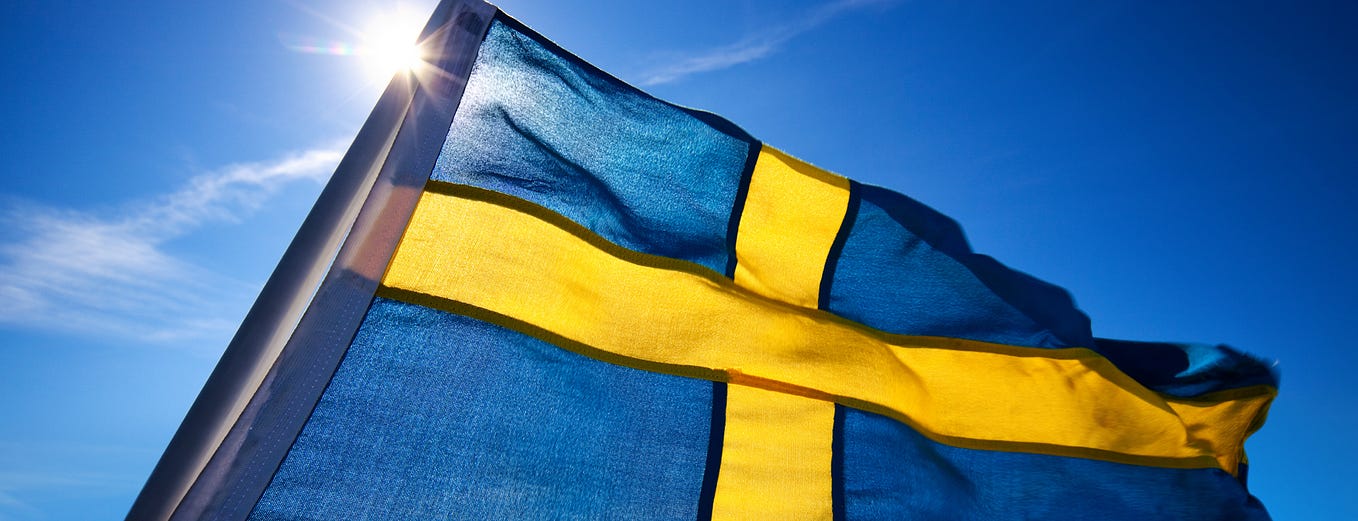BARNABAS: A Character Study
When considering the magnitude of the Christian church today, it is hard to imagine that in the beginning it struggled to survive. Faced with an external battle of persecution and an internal struggle for unification, growing the church may have seemed impossible at the time. And for a while, that was the case. However, with the help of one man named Barnabas, the early Christian church not only survived, but thrived.
The majority of what we know about Barnabas comes from the Book of Acts[1]. However, we also find mentioning of Barnabas in Galatians, 1 Corinthians, and Colossians[2]. On top of what is found in the New Testament, there is also a non-canonical source, The Epistle of Barnabas, that tells us more about who Barnabas was. Although the epistle contains few clues as to who the author actually is, it is often attributed to Barnabas because of its refutation of Christian Judaism[3].
Not much is known regarding the birth of Barnabas. In fact, the only mention of his birthplace occurs when he is introduced in the Acts of the Apostles. Born as Joseph, we learn in Acts 4:36 that he was a Levite from Cyprus. Although that is the only background information we have of Barnabas, it is actually quite telling.
Levites were descendants of Levi, the third son of Jacob and Leah, and members of the Tribe of Levi[4]. As told in Deuteronomy 10:8, the Levites were specifically set apart from all of the other tribes. There it is told that they would carry the ark of the covenant and among other things, pronounce blessings upon the Lord. The Levites would eventually become assistants to the priests and perform other temple needs. Additionally, the Tribe of Levi was not given its own land. As told in Deuteronomy 10:8, the Lord was to be their inheritance. That is why the Levites were dispersed among the land of the many tribes.
The island country of Cyprus, where Barnabas was born as Joseph, is the largest island in the Mediterranean Sea. Originally inhabited by the Phoenicians, it eventually fell to the rule of the Greeks[5]. Because of this, Barnabas probably spoke the Greek language[6]. Furthermore, Barnabas was probably familiar with life of the Gentiles and of those who practiced Hellenistic Judaism — Jews who spoke Greek and adhered to Greek culture[7].
The first mention of Barnabas in the New Testament occurs in the Acts of the Apostles. Here is where we see Joseph become Barnabas. Preceding the introduction of him, we are told how the believers share their possessions and that “…from time to time those who owned land or houses sold them, brought the money from the sales and put it at the apostles’ feet, and it was distributed to anyone who had need[8].”
Seemingly, out of nowhere, “Joseph, a Levite from Cyprus, whom the apostles called Barnabas, sold a field he owned and brought the money and put it at the apostles’ feet.[9]” Even though Joseph was a Levite who lived off of the temple, he freely sold his land and laid the proceeds at the feet of the apostles. This exemplifies who Joseph was as a person to the core. Perhaps by chance, the name Joseph means “may God add[10].” When Joseph gives the money to the apostles, we see them give him the name Barnabas, which means “son of encouragement” or “son of exhortation.[11]”
Immediately after the introduction of Joseph, who is now Barnabas, we see why he became part of the story. In Acts 5:1, we are introduced to Ananias and his wife Sapphira. Like Barnabas, Ananias had sold a field he owned, and with the full knowledge of his wife, had kept some of the money for himself. So, when he went to lay the money at the apostles’ feet, he is told that not only did he lie to human beings, but to God himself! At the sound of this, Ananias falls to the ground and dies. Eventually the same happens to his wife, Sapphira[12]. Whereas Barnabas had sold his land out of love and devotion, Ananias and Sapphira did it out of pride.
Our next encounter with Barnabas occurs later in the Acts of the Apostles. Here is where a crucial moment in the early church’s history occurs. Without the actions of Barnabas, and later the ministry of Saul, it is possible that the church would not be what it is today. In Acts 9:26, we see Barnabas bring Saul amongst the apostles in Jerusalem. Saul had previously tried to join the disciples, but they were afraid of him, rightly so.
Saul had been a persecutor of the early church. As noted in the Acts of the Apostles, Saul approved of the stoning of Stephen, went house to house putting men and women in prison, and even traveled to Damascus to arrest the high priests[13]. However, on his journey to Damascus, he was dramatically converted and renamed Paul.
Nonetheless, Barnabas took Paul to the apostles. He told them how Paul had seen the Lord and that the Lord had spoken to him, and how in Damascus he had preached fearlessly in the name of Jesus[14]. Eventually, the apostles accepted Paul amongst them. This of course would not have been possible without the actions of Barnabas. Here we see Barnabas’ discernment and reputation play a vital role in the church. For it was through Barnabas’ words that a man who had once been prosecuting them now sat among them.
Immediately following the acceptation of Paul amongst them, the Acts of the Apostles discusses how churches throughout the lands of Judea, Galilee, and Samaria enjoyed a time of peace and saw an increase in their numbers[15]. The actions of Barnabas, in his vouching for Paul, show the importance of members of the church supporting and encouraging new believers who otherwise may not have become a part of it.
Another vital moment in the early church history occurs with Barnabas at Antioch. As a result of the persecution many early Christians faced, they found themselves scattered amongst the land. In Acts 11:19, we are told that they traveled as far as Phoenicia, Cyprus, and Antioch and as was custom were spreading the word only to Jews. However, some men from Cyprus, where Barnabas was from, went to Antioch and started preaching the word to the Greeks[16]. Around this time, Antioch was the third largest city in the Roman Empire, only exceeded by Rome and Alexandria[17]. This caused a great number of Greeks to convert to Christianity and greatly grew the church.
When news of this got back to the church of Jerusalem, the apostles sent Barnabas to check out the situation and report back to them[18]. The selection of Barnabas for this task once again highlights his discernment and faithfulness. When Barnabas arrived at Antioch, he rejoiced in what the grace of God had done, and encouraged all the new converts to remain true to the Lord with all of their hearts[19]. The “son of encouragement” had remained true to his name.
In Acts 11:24, we are given a description of Barnabas that is nearly noble; one that is truly unique for a man in the Acts of the Apostles. The author says Barnabas “…was a good man, full of the Holy Spirit and faith[20].” If “good” referred to his personality then “full of the Holy Spirt and faith” referred to his spirituality[21]. Of course, this would make sense as the last part of Acts 11:24 tells us that “a great number of people were brought to the Lord.
With the many conversions occurring in Antioch, Barnabas goes to Tarsus in search of Paul who had been off of the scene for some time. When Barnabas finds him, he brings him to Antioch and for a year, Barnabas and Paul met with the church and taught a vast majority of people[22]. It is there, in Antioch, where the disciples became known as Christians[23].
One last major passage concerning Barnabas occurs in Acts 13:1–3. Here, at the church in Antioch, Barnabas and Paul, along with others, are worshiping and fasting when the Holy Spirit said, “Set apart for me Barnabas and Saul for the work to which I have called them[24].” After they finished fasting, they placed their hands on them and sent them off[25]. From this, we see that Barnabas, along with Paul, were truly chosen by God for a special mission of ministry.
It is often noted that during this time of their missionary, Barnabas is always listed before Paul, probably due to his role at the church in Antioch. However, as their ministry continues, Paul seems to take over as leader of the team[26]. Once again, we see who Barnabas is through his actions. He never demanded recognition or authority, rather, as Paul gifts and abilities grew, Barnabas knew when to step aside[27].
Although I only explored Barnabas throughout Acts of the Apostles, you can clearly see that he played a predominate role in the early Christian church; he was truly the “son of encouragement.” Not only did that show through what he did for himself, but what he did for others, especially in the case of Paul, who would later become a significant church leader.
Barnabas without a doubt became a model for later generations. It all started when he sold his field and laid the money at the feet of the apostles. From there, he did nothing but serve others, not for himself, but for the church. He willingly did as the church needed and it resulted in a church that flourished. Barnabas used his wisdom and knowledge to teach the next generation of Christians and in doing so ensured that the church didn’t just survive, but thrive.
[1] Dan Lioy “Barnabas: 43 facts and lessons from the life of a disciple,” https://disciplr.com/barnabas-facts-lessons/
[2] Ibid.
[3] “Epistle of Barnabas,” New World Encyclopedia, http://www.newworldencyclopedia.org/entry/Episte_of_Barnabas
4 “Twelve Tribes of Israel,” Encyclopedia Britannica, https://www.britannica.com/topic/Twelve-Tribesof-Israel
[5] “Cyprus,” Bible Study Tools, https://www.biblestudytools.com/dictionary/cyprus/
[6] Dan Lioy “Barnabas: 43 facts and lessons from the life of a disciple,” https://disciplr.com/barnabasfacts-lessons/
[7] Ibid
[8] Acts 4:34
[9] Acts 4:36
[10] “Barnabas: Son of Encouragement,” Grace Lutheran Church, http://www.glclowell.com/home/180012074/180012074/docs/barnabas.pdf
[11] Acts 4:36
[12] Acts 5:1–10
[13] Acts 8:1–2, 9:1–2
[14] Acts 9:27
[15] Acts 9:31
[16] Acts 11:20
[17] “Barnabas: Son of Encouragement,” Grace Lutheran Church, http://www.glclowell.com/home/180012074/180012074/docs/barnabas.pdf
[18] Acts 11:22
[19] Acts 11:23
[20] Acts 11:24
[21] Dele Oake “Barnabas — Men of the Bible,” The Living World Library, http://www.wordlibrary.co.uk/article.php?id=603
[22] Acts 11:26
[23] Ibid.
[24] Acts 13:2
[25] Acts 13:3
[26] “The Barnabas Ministry,” BarnabasMinistry.com, http://www.barnabasministry.com/seminarycharacter-barnabas.html
[27] Ibid.









